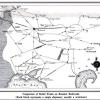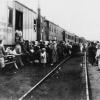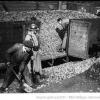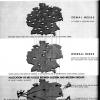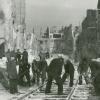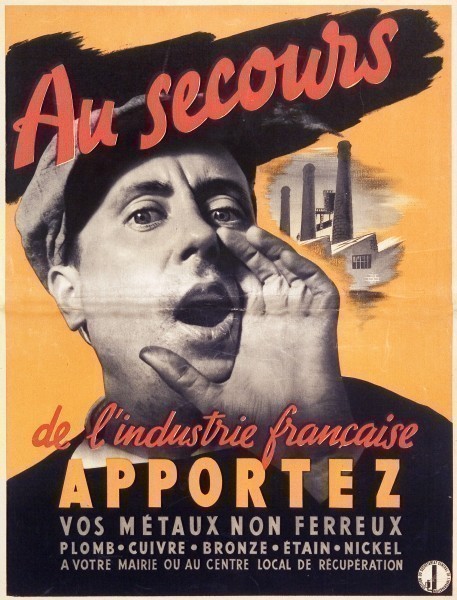France as an "exporter" of metals
Two decades after French occupation of the Saar, the Germans set out to settle scores.
It can be estimated that the value of the manufactured goods, agricultural produce, and raw materials obtained from France by the Nazis during the Second World War was 12.5 percent of the German GNP in 1943, based on the wartime exchange rate. However, since the franc was forcibly undervalued, that contribution must have been significantly underestimated.
Most of that wealth was transported to Germany through railways, which meant a significant increase in traffic on the French tracks, and considerable effort to National Corporation of French Railways (Société Nationale des Chemins de fer français, or SNCF). Its locomotives used to run on good quality British coal, supplies of which were cut off during the war, and even deliveries of domestic fuel were limited.
Some fifteen percent of French coal was transported to Germany. Germans were particularly anxious to control the delivery of strategic raw materials like metal ores needed to keep their armaments industry running. The transport of those raw materials doubled during the occupation. In 1943, more than three-quarters of France's iron ore supply, and half of its bauxite output, went to Germany.
France even sent copper to Germany, though it actually has no copper deposits. Since French citizens had copper, the Vichy government appealed to them to collect it. Needless to say, the action was boycotted as a form of collaboration with the Nazis.
 Previous Story
Next Story
Previous Story
Next Story
How to cite this page
Slawomir Lotysz, 'France as an "exporter" of metals', Inventing Europe, http://www.inventingeurope.eu/story/france-as-an-exporter-of-metals
Sources
- Jones, Joseph. The Politics of Transport in Twentieth-Century France. Kingston: McGill-Queen's University Press, 1984.
- Milward, Alan S. War, Economy, and Society, 1939-1945. Berkeley: University of California Press, 1977.





